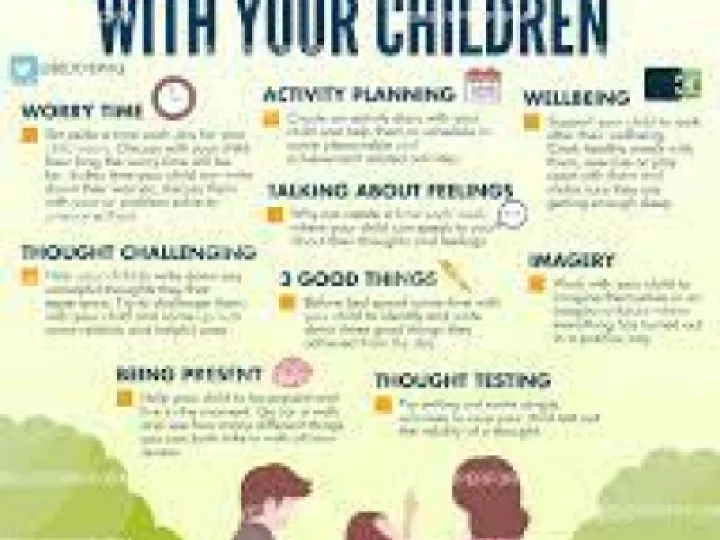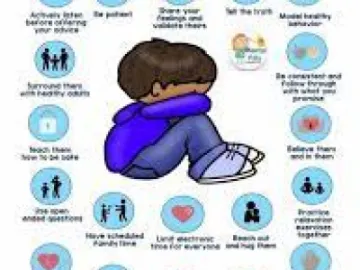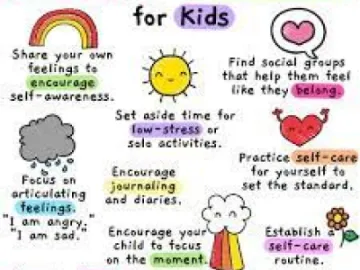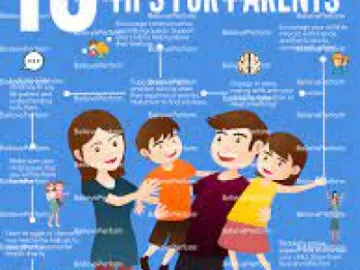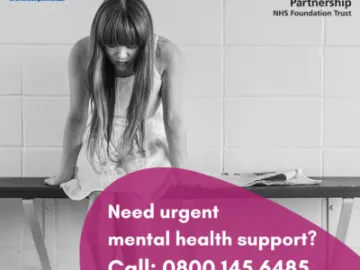Mental Health
Young Minds
We know parenting isn't always easy. Although it's often amazing and rewarding to watch your children grow up, and to help them learn to be independent, it can also be really hard work. It can feel especially hard if your child's mood and behaviour seem different and you're not sure why, or what you can do to help. But you are not alone.
We have lots of practical advice and tips on supporting your child – from how to encourage your child to open up about their feelings to dealing with mental health services. No matter what you and your child are going through, things can get better.
We also have our Parents Helpline who can provide advice and support if you're worried about a child or young person.
Support groups – Clinical depression
Depression can make you feel isolated. It can be helpful to meet with other people who understand what it's like. This is sometimes called peer support.
Parenting with mental health problems
Parenting comes with lots of challenges, which can be even more difficult if you're dealing with mental health problems.
Not all children who live with someone with mental health problems will experience abuse or be affected negatively. In fact, many parents are able to give children safe and loving care.
But sometimes it does affect their ability to cope with family life. So it's important that parents and carers can find support when they need it.
Self-help groups allow people with depression to provide, as well as receive, help.
Place2Be
As parents and carers we play an important role in teaching children and young people how to understand and manage their feelings as they grow up.
I'm worried about my child or young person
If their life is in immediate danger, call 999. If not, follow our advice for getting urgent help.
What can I do at home?
Find time to talk, just the two of you – 'Check in' with them while you're doing things together, so they get used to talking about their feelings.
Play together – Play helps them to be curious, learn new things, solve problems and express feelings without words.
Be a role model – Show how you cope with difficult feelings and look after yourself.
Where can I get more information?
Child mental health and wellbeing:
NHS
Young Minds
MindEd
Place2Be's blog
Big changes:
Bereavement and grief (Child Bereavement UK) or (Winston's Wish)
Divorce and separation (Young Minds)
Getting ready to start school (Place2Be)
Adolescence and growing up (The Mix)
Exam stress (Place2Be)
Conditions and challenges:
Eating disorders (Beat)
Addiction and drugs (FRANK)
Abuse (NSPCC)
Difference and diversity:
Special needs and disabilities (Scope)
Autism (National Autistic Society)
LGBTQ+ (Strong Family Alliance)
Gender diversity and transgender (Mermaids)
Race and ethnicity (BAATN)
Please note, this is not an exhaustive list and we are unable to signpost to every organisation. Please refer to the NHS or BBC Action Line for a more comprehensive directory.
Does my child or young person need mental health support?
It's normal to feel angry, sad, worried or stressed sometimes.
However, if they're struggling to cope with those feelings, they might need support.
Look out for:
Sudden changes in behaviour
Negative thoughts and low self-esteem
Arguing and fighting
Sleep problems
Avoiding school or staying with you all the time
Aches and pains
Remember – everyone is different and these signs might not have anything to do with a mental health problem.
Children and young people can be affected by big changes like:
Death or illness in the family
Parents separating
Moving school or moving house
Tests and exams
Adolescence and puberty
Relationship and friendship problems
Try talking to them first. If you're worried, follow our advice for getting help

